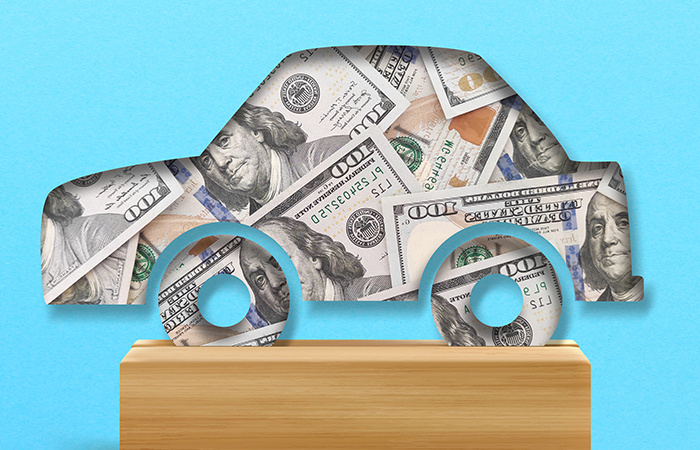Learn from the mistakes of others so they don't happen to you.
Buying a car is a significant financial decision that requires careful consideration and research. To help you avoid financial strain and dissatisfaction with a vehicle purchase, let's explore common mistakes people make when buying a car.
First, remember that just because you can "afford" a specific vehicle doesn't mean it's ultimately the best use of your money. Every dollar spent on a car is money that can't be used for other things. It may seem obvious, but since cars are one of the most expensive things we buy, understanding the "opportunity cost" is important. For example, suppose someone buys a new car every few years. In that case, they continually pay for new car depreciation - the most expensive part of car ownership. Over a lifetime, that cost adds up to tens or even hundreds of thousands of dollars that could have been invested for retirement or spent elsewhere.
That said, here are some common mistakes people make when buying a new vehicle:
- Spending more than necessary. Remember, just because you can "afford" a specific price doesn't mean it's ultimately the best use of your money.
- Avoiding negotiation. Sure, negotiation is uncomfortable for some people, but it's a crucial part of getting a fair price. If you don't want to negotiate, seek a friend's help or consider a car-buying service.
- Focusing only on the monthly payment. Many buyers focus solely on the monthly payment, which can lead to longer loan terms and higher interest costs.
- Forgetting about the total cost of ownership. A seemingly affordable monthly car payment doesn't include additional costs such as insurance, gas, maintenance, financing, and depreciation.
- Not considering all financing options. Dealer financing isn't always the best deal. Shopping around for financing from banks, credit unions, or online lenders can potentially save you money.
- Not researching your purchase. There's no reason to shop for a car without a target price, buy a known clunker, or be surprised by fuel, insurance, or depreciation costs after the purchase.
- For used cars, skipping an inspection and vehicle history report. A mechanical inspection from an independent mechanic can give you more information about potential expenses you may incur sooner rather than later (new brakes, for example). A vehicle history report from a company like CarFax can also let you know if the vehicle has been involved in an accident, something that should definitely influence the price you pay.
- Impulse buying. Being pressured to purchase a car on the spot is a great way to pay too much for it. At the very least, take a night to consider your purchase and an hour or two to call around to other dealerships to get prices for similar cars.
- Trading in your car rather than selling it yourself. You may sometimes realize more value from your existing vehicle by selling it yourself. If you choose to trade in, make sure the price of the new car is negotiated separately from the price of your trade-in. That way, you'll know exactly what you're getting for your vehicle.
- Making emotional decisions. You may love one particular car, but is it the best financial decision for you? Even if you find a car you love, take a night to sleep it over before making your decision - chances are it will still be there tomorrow.
- Not comparison shopping. The simple act of telling a dealer you are shopping around will often yield lower prices.
- Getting an insurance quote after buying the car. Insurance rates can vary considerably between vehicles. High rates may also cause you to skimp on coverage that you would need in the event of an accident. Get insurance quotes before shopping.
- Buying unnecessary extras. Dealerships often push extras like extended warranties, paint protection, or rust-proofing. These are often overpriced and not always necessary.
- Not considering resale value. Some cars depreciate faster than others. Researching resale values can help you make a more informed decision and potentially save money in the long run.
- Overlooking fuel efficiency. Failing to consider a vehicle's fuel efficiency can lead to higher than expected operating costs over time.
- Skipping the fine print. Not reading the contract carefully before signing can result in agreeing to unfavorable terms or hidden costs.
- Not test driving the car sufficiently. Make sure to drive the car on various roads and at different speeds to ensure it meets your expectations in terms of comfort, handling, and performance.
- Underestimating the value of safety features. While safety features might add to the upfront cost, they can potentially save lives and reduce insurance costs in the long run.
Buying a car is a complex process that requires due diligence and careful consideration. By avoiding these common mistakes, you can ensure that you make a sound financial decision and purchase a vehicle that meets your needs and budget.
Remember to take your time, do your research, and never let emotions cloud your judgment. With the right approach, you can drive away in a vehicle you love, knowing you made a wise investment in your transportation needs.

